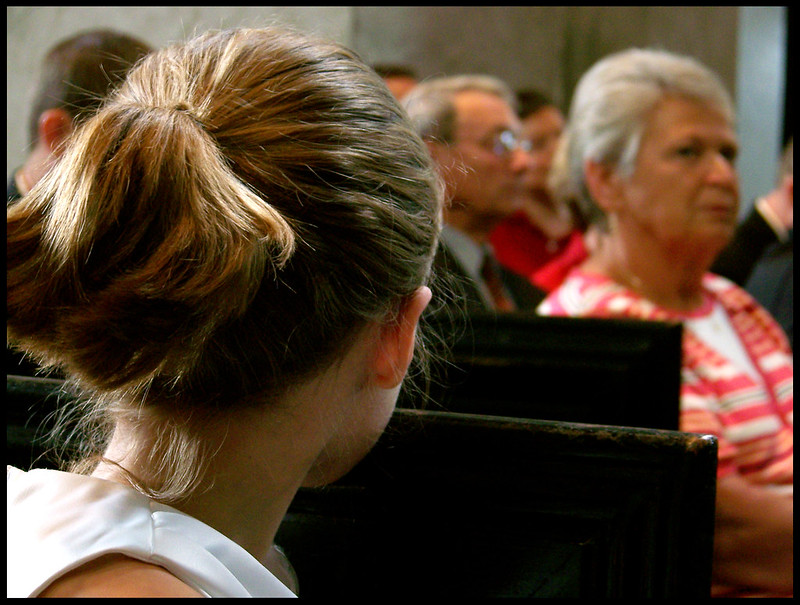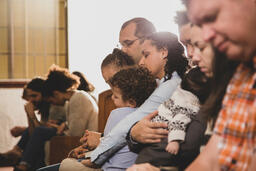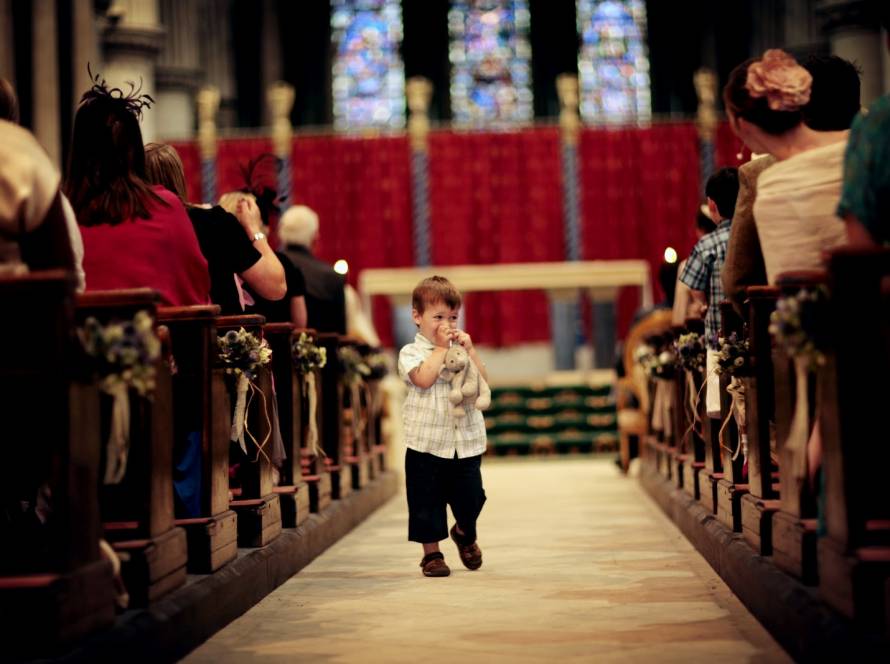The discussion about intergenerational ministry and generational discipleship within a church or congregational community generally sparks a number of questions. Over the past few years, a few have popped up more frequently than others. Below is a Intergenerational FAQ; hopefully this will be helpful for any of you that may have been asked or are asking the same questions.
What is Intergenerational Ministry?
Simply put, intergenerational worship is ministry that focuses on connecting multiple generations in faith-forming relationships cultivated through times of corporate worship, intentional discipleship, and ongoing mentorship.
Intergenerational ministry encompasses the whole church, all generations, in communal and corporate contexts of friendship, mentorship, discipleship, and relationship. Intergenerational ministry is more of a cultural characteristic of a church than it is a ministry area; it is a culture that values and creates space for meaningful connections to be made across generational boundaries in a variety of settings for the purpose of generational discipleship, faith formation, and community building.
As the term implies, intergenerational ministry is an intentional approach to ministry that both allows for and encourages interaction between multiple generations in such ways as corporate worship, relational mentorship and lifelong community. Intergenerational ministry is, at its heart, the church, built and fitted together, as the body of Christ.
What is Generational Discipleship?
Generational discipleship is the passing on of our faith from one generation to another. In Scripture, it is the model we are given for how we instill within our children and grandchildren the faith that our parents and grandparents shared with us and we do so within the context of relationship, mentorship, and community. For a more in-depth discussion on this, check out this post or this article.
Isn’t Intergenerational Ministry basically Children’s/Family Ministry?
Some people express the concern that if children and youth are welcomed into conventionally adult spaces, they’d have to start doing “kids stuff” like singing songs with motions and eating goldfish during the super-short, kid-appropriate sermon.
Intergenerational worship is not old people pretending to be kids or young people trying to act old.
If that happened, it would be a total disservice to the whole point of intergenerational worship which has at its heart a desire to help kids and youth and adults and elderly be a part of the church as it is, whatever that looks like, and to experience all the parts of church that make it unique to their church tradition (such as liturgy, songs, Scripture reading, celebratory practices like baptism and communion, and all the other rhythms that make each worship service unique).
Is Generational Discipleship/Intergenerational Ministry just the newest fad?
Actually, it’s exactly the opposite. The segregation of ages within the church is a fairly new practice in American church history. Most of the time it gets traced back to the start of ministries on college campuses on post WWII America where it became apparent that there was a need for age-specific ministry. Churches began to recognize the need to create space to address the developmental concerns of each age group. Through time that progressed into less of a “both/and” model and more of an “either/or” model. In other words, instead of times of both age-specific and intergenerational gatherings, it became one or the other with little to no opportunity or encouragement to do both.
For those who see intergenerational worship as the “newest” fad to come down the block, it is helpful to understand that for thousands of years, the church all worshiped together and only recently have we begun consistently separating the ages, which makes it very hard to learn from one another as Christ indicated that we should.
Isn’t best for people to learn, worship, congregate with people their own age or life experience?
There are lots of reasons to have spaces that meet our unique developmental needs. For instance, the ability to think abstractly is a characteristic of higher levels of development; until then, concrete thought is our primary means of processing. So we should have places where concrete access to learning is granted. However, if we are looking at basics of cognitive, social, and spiritual development, we find out that we primarily learn the most from one another when we are around a wide spectrum of ages and life experiences (Read more here!). Development not just about what children or adults can understand in terms of words and concepts; it’s about what they can learn socially, emotionally and in our case, spiritually.
Where can I find resources for Intergenerational community?
While it’s true that most curriculum, discipleship resources, and formation programming tend to center around age and/or life experience, there is a growing pool of resources for those interested in providing a more intentional, inclusive experience in their church. Below is a list of places to begin your search; many of these resources will connect you to even more resources. And feel free to check out our own list of resources here at ReFocus as well.
- GenOn Ministries partners with churches to grow intergenerational community and faith in God through Jesus Christ
- Faith Inkubators offers a wide range of intergenerational and family ministry resources, curriculum, and support.
- Building Faith is a ministry of Virginia Theological Seminary to equip and inspire churches and individuals for the ministry of Christian education and faith formation.
- Lifelong Faith resources and services are focused on helping pastors and faith formation leaders to create the future of lifelong faith formation in their churches by Imagining, Innovating, and Inspiring. Imagine: imagining a new vision of forming faithful disciples in today’s world; Innovate: Designing innovative faith formation for all ages, families, and generations; Inspire: Inspiring people to grow into a faith for a lifetime
- Books: InterGenerate and Engage All Generations are books that answer the “Why?” and “How?” of intergenerational ministry.
- Curriculum: D6 EveryDay Curriculum cultivates generational disciple makers to live out what they learn. As a family of curriculum products that provides resources to connect church and home, D6 EveryDay aligns family members of all ages.
Generations Together 2025
Generations Together is a one-day online conference designed to inspire and equip church leaders, volunteers, and ministry teams to build bridges across generations. Whether you’re new to intergenerational ministry or looking to deepen what you’re already doing, this conference will give you practical tools, inspiring stories, and meaningful connections to help your whole church grow—together.
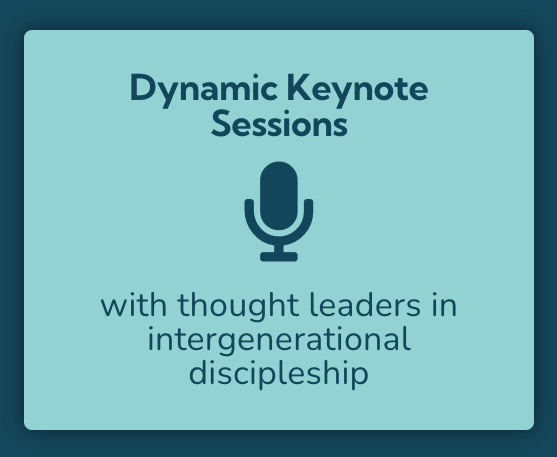
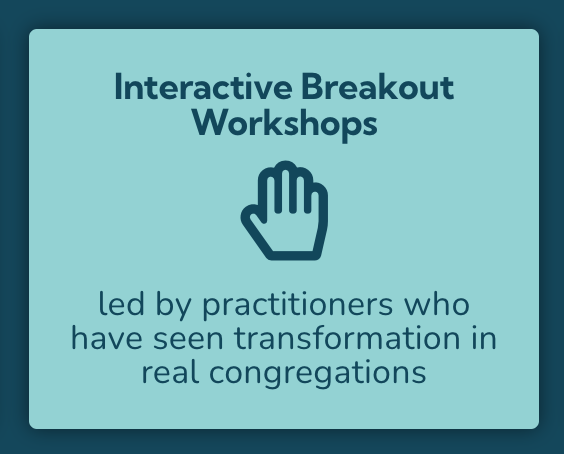

- Four Keynote Speakers
- 12 Breakout Sessions with topics from toddlers to senior saints and everything in between!
- Ministry Meet-up so that you can network with other leaders just like you!
- A VIP Registration that includes all session recordings, a VIP Resource Bundle, and a follow-up Q&A after the conference.
Churches today face generational gaps, siloed ministries, and a longing for community across age lines. Generations Together offers an accessible and affordable way to: Learn from leaders actively doing the work; Receive tools and resources to strengthen your ministry; Connect with others who care about lifelong faith formation; Walk away ready to bridge the gap between generations in your own context
And with our low-cost pricing—$30 Regular, and $50 VIP—it’s built to be accessible for every kind of leader.
Register now at https://www.refocusministry.org/generations-together-2025
It’s time to start connecting generations. We all know it!
But, how to do it? And how to do it in a way that is sustainable in a supportive environment? Let’s go deeper – deeper in our understanding of generational discipleship, lifelong faith formation, and intentional discipling community.
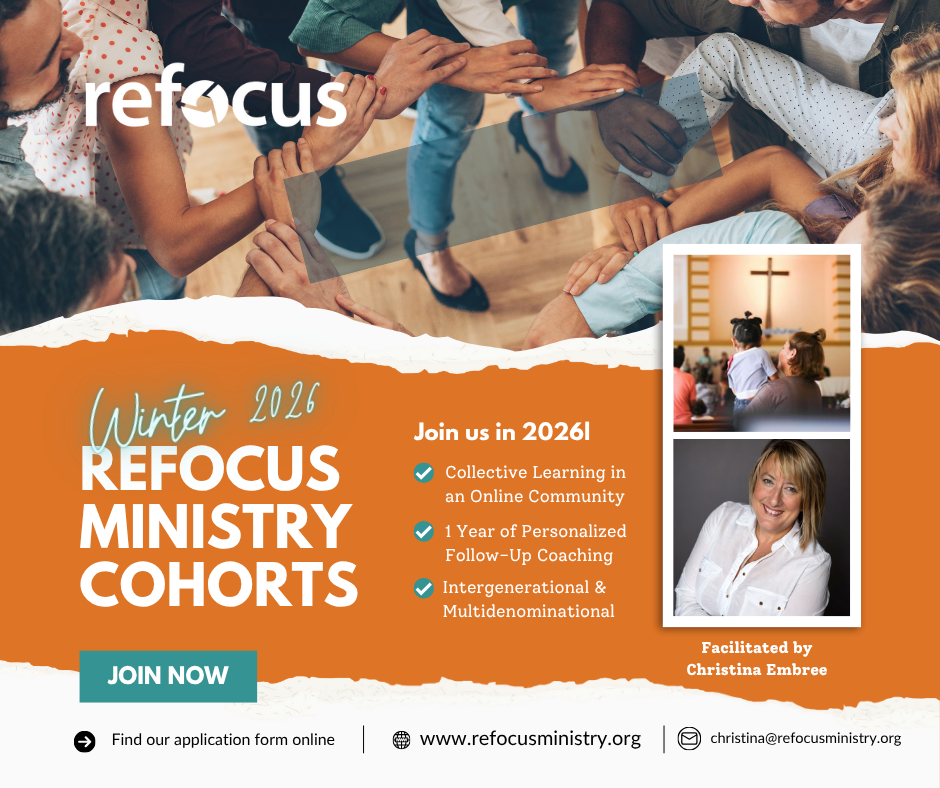
ReFocus Ministry Cohorts provide ministry leaders with the opportunity to expand their leadership skills in a twelve-week shared learning experience. Facilitated by Christina, a cohort group of 4-6 individuals from multiple denominational backgrounds meet weekly to explore and apply the principles of leadership in generational discipleship, intergenerational ministry, and church culture transition.
Learn More: https://refocusministry.org/speaking-coaching/
(ReFocus Ministry Cohort Tab)
Submit Interest Form: https://forms.gle/WKf2Zd97kv95vovr7
Scholarship inquiries: Email christina@refocusministry.org
About the Founder of ReFocus Ministry
Christina Embree is the founder and director of ReFocus Ministry. She holds a masters in ministry focused on Children, Youth, and Family Ministry and a doctorate in spiritual formation with a focus on age segregation and intergenerational ministry.
In addition to coaching churches of multiple denominations and traditions all around the globe, Christina serves as the Minister of Generational Discipleship for the Great Lakes Conference of the Brethren in Christ and as Next Gen pastor at Open Door Church in Lexington, Kentucky.
She is widely recognized as a speaker and author in the areas of generational discipleship, intergenerational ministry, and family ministry. As the mother of three children, she is familiar with the challenges of faith at home and pastoral ministry. She along with her husband Luke share a love for the church, their community, and the global work of peace and restoration through Jesus.
Interested in having Christina visit your church, speak at your conference, or coach your team?
Christina speaks on a wide range of topics related to children, youth, and family ministry with a unique focus on connecting generations for discipleship within your church. Her personalized approach allows you to pinpoint the needs of your community and gain the insight that you are looking for. Whether this is a volunteer team training and pastoral staff meeting or a ministerial conference, her experience and knowledge will help you determine the next step forward in creating lifelong disciples.

